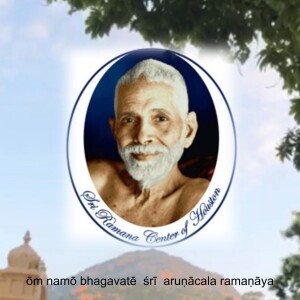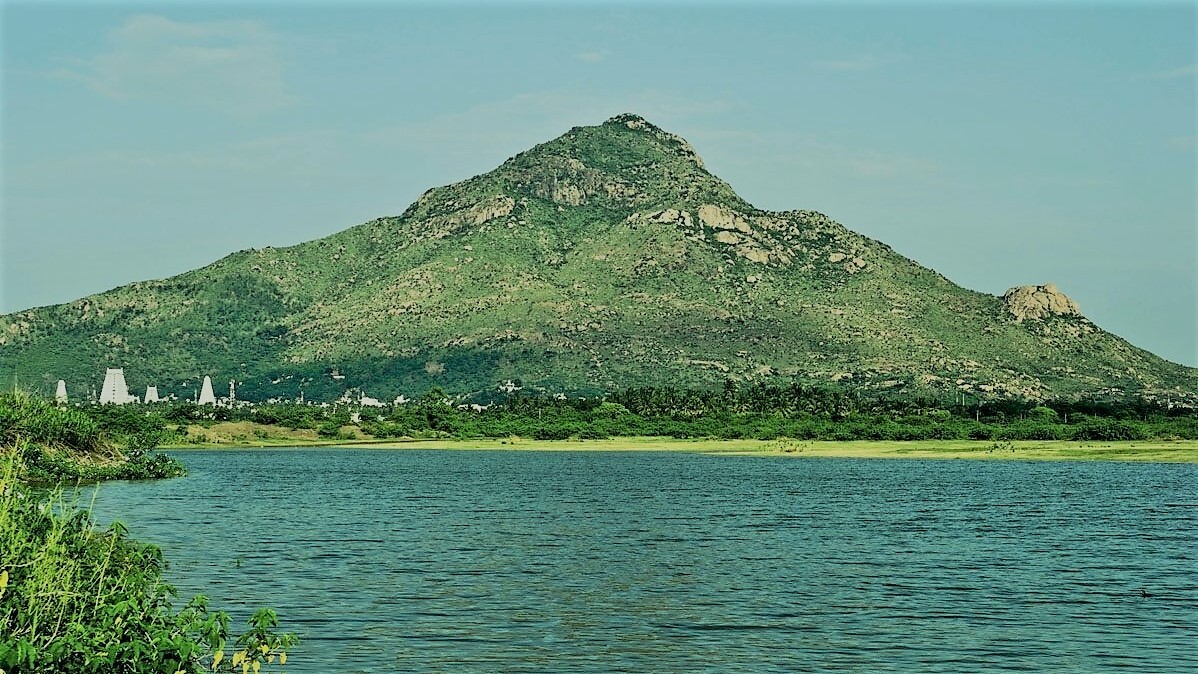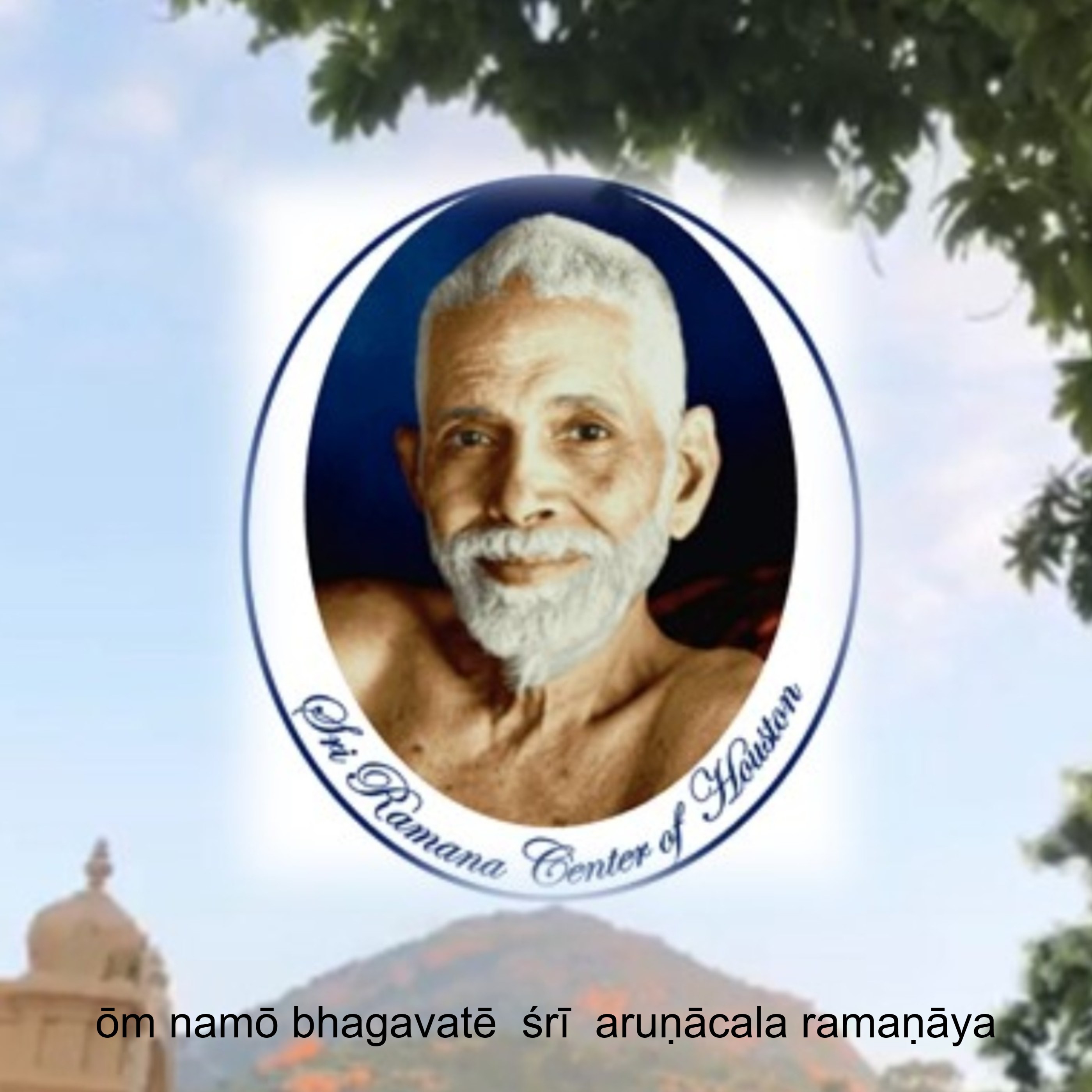Episodes

Saturday Jul 27, 2024
The nature of ego and how to eradicate it
Saturday Jul 27, 2024
Saturday Jul 27, 2024
In a Zoom meeting on 24th July 2024, Michael answers Kartik's questions about Bhagavan’s teachings, specifically about the nature of ego and how to eradicate it.
This episode can also be watched as a video here and a more compressed audio copy in Opus format (which can be listened to in the VLC media player and some other apps) can be downloaded from here.

Thursday Jul 25, 2024
Uḷḷadu Nāṟpadu Anubandham verse 16
Thursday Jul 25, 2024
Thursday Jul 25, 2024
n a Zoom meeting with Sri Ramana Center, Houston, on 20th July 2024, Michael James discusses Uḷḷadu Nāṟpadu Anubandham, verse 16.
The translation of the verse by Michael can be found here.
This episode can also be watched as a video here and a more compressed audio copy in Opus format (which can be listened to in the VLC media player and some other apps) can be downloaded from here.

Friday Jul 19, 2024
Investigating who am I is the means to just be
Friday Jul 19, 2024
Friday Jul 19, 2024
In a Zoom meeting with the Ramana Maharshi Foundation UK on 13th July 2024, Michael answers various questions about Bhagavan’s teachings.
This episode can also be watched as a video here and a more compressed audio copy in Opus format (which can be listened to in the VLC media player and some other apps) can be downloaded from here.

Sunday Jul 14, 2024
Why is ego annihilated in manōnāśa and not in manōlaya
Sunday Jul 14, 2024
Sunday Jul 14, 2024
In a Zoom meeting with the San Diego Ramana Satsang (ramana-satsang-sd@googlegroups.com) on 7th July 2024, Michael answers various questions about Bhagavan’s teachings.
This episode can also be watched as a video here and a more compressed audio copy in Opus format (which can be listened to in the VLC media player and some other apps) can be downloaded from here.

Monday Jul 08, 2024
Michael answers questions
Monday Jul 08, 2024
Monday Jul 08, 2024
Michael explains the essential import of Uḷḷadu Nāṟpadu and all of Ramana's teachings in 8 key points -- 8 talks (videos).
Part 2a about the 2nd key point "what we actually are is just pure existence-awareness (sat-cit), which is what always shines as our own being, our fundamental awareness ‘I am’. In this video (part 2b) Michael answers (more) questions related to Ramana's teachings.
This episode can also be watched as a video here and a more compressed audio copy in Opus format (which can be listened to in the VLC media player and some other apps) can be downloaded from here.
Disclaimer: The book mentioned at the beginning of this episode is a private compilation by a third party that has not been read or endorsed by Michael James or by the management of Sri Ramana Center of Houston. This video is released for educational purposes only. As a U.S.-based nonprofit spiritual organization, SRCH does not endorse for-profit products or services, nor nonprofit offerings that are not aligned with its mission to spread the teachings of Bhagavan Ramana.
- Sri Ramana Center of Houston

Friday Jul 05, 2024
We are pure existence-awareness and infinite perfect happiness
Friday Jul 05, 2024
Friday Jul 05, 2024
Michael explains the essential import of Uḷḷadu Nāṟpadu and all of Ramana's teachings in 8 key points -- 8 talks. This is the second talk with the second point: what we actually are is just pure existence-awareness (sat-cit), which is what always shines as our own being, our fundamental awareness ‘I am’, and which is the infinite fullness of perfect happiness (ānanda). After explaining the second point, Michael answers questions related to Ramana's teachings.
There was a reference made in the video to the following article, in which Michael is included regarding Bhagavan’s teachings (page 123 in the PDF version): “A Landscape of Consciousness: Toward a Taxonomy of Explanations and Implications" by Robert Lawrence Kuhn in 'Progress in Biophysics and Molecular Biology': https://doi.org/10.1016/j.pbiomolbio.2023.12.003
This episode can also be watched as a video here and a more compressed audio copy in Opus format (which can be listened to in the VLC media player and some other apps) can be downloaded from here.
Disclaimer: The book mentioned at the beginning of this episode is a private compilation by a third party that has not been read or endorsed by Michael James or by the management of Sri Ramana Center of Houston. This episode is released for educational purposes only. As a U.S.-based nonprofit spiritual organization, SRCH does not endorse for-profit products or services, nor nonprofit offerings that are not aligned with its mission to spread the teachings of Bhagavan Ramana.
- Sri Ramana Center of Houston

Monday Jul 01, 2024
Monday Jul 01, 2024
In a Zoom meeting with the Ramana Maharshi Foundation UK on 29th June 2024, Michael answers various questions about Bhagavan’s teachings.
This episode can also be watched as a video here and a more compressed audio copy in Opus format (which can be listened to in the VLC media player and some other apps) can be downloaded from here.

Sunday Jun 16, 2024
What is real? What is unreal? How to unrealise the unreal?
Sunday Jun 16, 2024
Sunday Jun 16, 2024
In a Zoom meeting on 12th June 2024, Michael answers Carlos' question: What is real? What is unreal? How to unrealise the unreal?
This episode can also be watched as a video here and a more compressed audio copy in Opus format (which can be listened to in the VLC media player and some other apps) can be downloaded from here.

Saturday Jun 15, 2024
Āṉma-Viddai verse 4 (concluded) with Q&A
Saturday Jun 15, 2024
Saturday Jun 15, 2024
In a Zoom meeting with Ramana Kendra, Delhi, on 9th June 2024, Michael James concludes the discussion of the meaning and implications of verse 4 of Āṉ𝘮𝘢 𝘝𝘪𝘥𝘥𝘢𝘪 and answers questions about Bhagavan's teachings.
The link to this verse is here:
கன்மா திகட்டவிழ சென்மா திநட்டமெழ
வெம்மார்க் கமதனினு மிம்மார்க் கமிக்கெளிது
சொன்மா னததனுவின் கன்மா திசிறிதின்றிச்
சும்மா வமர்ந்திருக்க வம்மா வகத்திலான்ம —
சோதியே; நிதானு பூதியே; இராது பீதியே;
இன்பவம் போதியே. (ஐயே)
English translation: For the bonds beginning with action to be untied, to rise from the devastation beginning with birth, more than whatever path, this path is what is exceedingly easy. When one just is, resting without the least action of mind, speech or body, ah, in the heart the light of oneself alone. The eternal experience. Fear does not exist. The ocean of bliss alone. (Ah, extremely easy, ...)
Explanatory paraphrase: For the bonds beginning with karma [that is, the bonds of action and of all that results from it] to be untied, and to rise [or be resurrected] from the devastation beginning with birth [that is, to transcend and become free from the miseries of embodied existence, which begins with birth and ends with death], more than whatever [other] path, this path [of ātma-vicāra] is what is exceedingly easy. When one just is, resting [calmly as pure awareness] without the least karma [action] of mind, speech or body, ah, in [one’s] heart the light of oneself alone [will shine forth clearly as ‘I am I’]. [Having thereby drowned and lost oneself (namely ego) forever in this perfectly peaceful and infinitely clear state of pure awareness, it will be clear that this is one’s] eternal experience. Fear does not [or will not] exist. The ocean of [infinite] bliss alone [will remain]. ([Therefore] ah, extremely easy, ātma-vidyā, ah, extremely easy!)
This episode can also be watched as a video here and a more compressed audio copy in Opus format (which can be listened to in the VLC media player and some other apps) can be downloaded from here.

Wednesday Jun 12, 2024
Uḷḷadu Nāṟpadu verse 28 and the practice of ātma-vicāra
Wednesday Jun 12, 2024
Wednesday Jun 12, 2024
In a Zoom meeting with the Ramana Maharshi Foundation UK on 8th June 2024, Michael answers various questions about Bhagavan’s teachings.
This episode can also be watched as a video here and a more compressed audio copy in Opus format (which can be listened to in the VLC media player and some other apps) can be downloaded from here.

